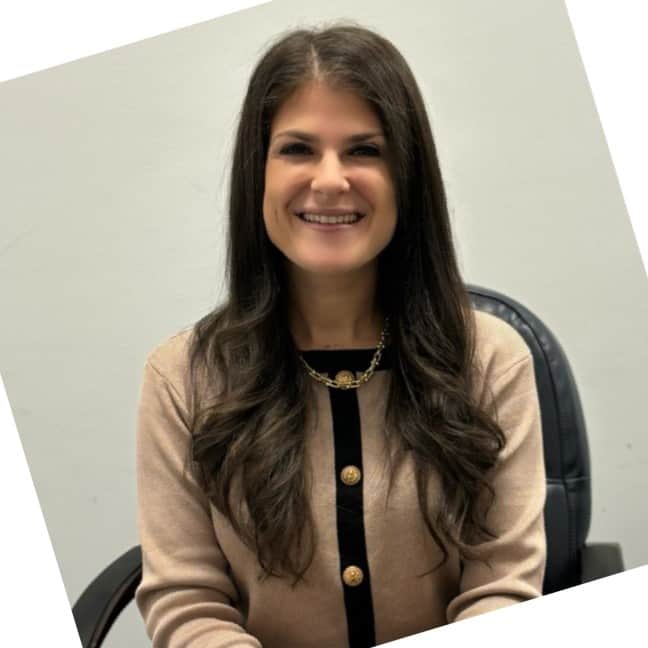Commonly Abused Prescription Drugs
Prescription drug misuse is a critical issue affecting people from all walks of life. Abusing these medicines can lead to addiction, physical dependence, and even life-threatening consequences. Throughout the country, a silent epidemic of prescription drug addiction continues to cause problems: According to a prescription drugs research report, approximately 52 million people (20 percent of those aged 12 and older) have used prescription drugs for non-medical reasons at least once throughout their lifetime.
Below is an overview of the most commonly abused prescription drugs, providing information on their uses and risks.
Opioid Painkillers
- Purpose: Prescription opioids are prescribed for pain relief
- Common Examples of Opioids: Oxycodone, hydrocodone, morphine, fentanyl, methadone
- Risks of Opioids: High risk of opioid use disorder, opioid overdose, respiratory failure, and death
Benzodiazepines (CNS Depressants)
- Purpose: Used to treat anxiety (to make people feel calm), insomnia, and seizures
- Common Examples: Valium (diazepam), Xanax (alprazolam), Ativan (lorazepam(
- Risks: Dependence, withdrawal complications, cognitive impairment
Prescription Stimulants
- Purpose: Typically prescribed for Attention Deficit Hyperactivity Disorder (ADHD) and sometimes narcolepsy
- Common Examples: Adderall (amphetamine/dextroamphetamine), Ritalin (methylphenidate)
- Risks: Heart problems, paranoia, high potential for abuse and addiction
Antidepressants
- Purpose: Treat depression and various anxiety disorders
- Common Examples: Prozac (fluoxetine), Zoloft (sertraline), Lexapro (escitalopram)
- Risks: Although less commonly abused, misuse can lead to serotonin syndrome and withdrawal symptoms
In addition to these medications, even over-the-counter drugs can sometimes be abused. Understanding the abuse of prescription medication and what medications are misused is crucial so you can recognize the signs of addiction and seek substance abuse treatment.
We’ve Helped Thousands of Individuals Overcome Drug and Alcohol Addiction
How Does Prescription Drug Addiction Begin?
Prescription medication abuse often starts subtly, unnoticed until it becomes a significant challenge. It’s essential to understand the pathways leading to addiction to prevent and address it effectively. Here’s how this often occurs:
Experimentation and Recreational Use: Experimentation and recreational use often serve as the initial steps toward substance use disorders. This casual or occasional use might shift to regular use as tolerance develops, driving a compulsive need to experience the drug’s effects. Without realizing it, this pattern can evolve into a dependency, where the drug becomes central to the user’s daily life, marking the beginning of addiction.
Increasing Dosage without Medical Consultation: This behavior often stems from the user’s tolerance to the drug’s effects, leading them to increase their dosage in an attempt to achieve the same level of efficacy or high. Doing so not only puts the individual at a higher risk of side effects and overdose but also significantly accelerates the path to physical dependence and addiction.
Prolonged Use Beyond Medical Need: Prolonged use of prescription drugs beyond their medical need is a risk factor for addiction. When individuals continue to take certain medications after the initial condition has healed or when the medication is no longer needed for its intended medical purpose, they may begin to rely on the medication for its psychological effects instead of its healing properties.
This extended usage can create a scenario where the individual feels unable to function normally without the drug.
Psychological Dependence: Psychological dependence occurs when an individual feels a compelling emotional need to continue using a substance despite any negative consequences it may have on their life. This dependence is characterized by cravings for the drug and the belief that one does not have coping skills to deal with life’s demands without it. Over time, the substance becomes a way to manage emotions, stress, or anxiety, even changing brain chemistry, according to The National Institute of Drug Abuse, and often leading to addiction.
By recognizing these pathways to addiction, individuals and health care providers can take steps to monitor and control prescription drug use, preventing addiction before it takes hold.
Signs And Symptoms Of Addiction to Prescription Drugs
Recognizing the signs and symptoms of addiction to prescription drugs is critical for early intervention and prescription drug addiction rehab. Addiction can manifest in various ways, affecting an individual’s physical health, mental well-being, and social behavior. Being aware of these signs can help identify potential issues before they escalate into more significant problems. Some common indicators include:
- Increased Tolerance
- Withdrawal Symptoms
- Changes in Behavior
- Neglect of Personal Hygiene
- Doctor Shopping
- Mood Swings
- Continued Use Despite Negative Consequences
By understanding these signs, individuals and their family members can seek the necessary help and emotional support to address prescription drug addiction.
Recovery Starts at Our Drug and Alcohol Rehab by Requesting a Call
"*" indicates required fields
Long-Term Effects Of Prescription Drug Abuse
Abuse of prescription drugs over a prolonged period can lead to severe and lasting effects on an individual’s health and overall quality of life. According to The Substance Abuse and Mental Health Services Administration, the combination of prescription drug and illicit drug use are the top causes of drug overdose.
Below are some of the most severe long-term effects associated with the abuse of prescription medications:
Physical Health Risks
- Chronic Pain: Regular misuse can lead to or exacerbate chronic pain conditions.
- Liver Damage: Prescription medication, especially when taken in higher doses than recommended, can cause liver damage or failure.
- Neurological Impairment: Prolonged abuse can lead to memory loss, decreased cognitive function, and impaired motor skills.
- Heart Problems: Cardiovascular issues, including increased risk of heart attack, stroke, and hypertension, can arise from extended prescription drug abuse.
Mental Health Issues
- Dependence and Addiction: Long-term use can lead to physical dependence and addiction, where the user is unable to stop taking the drug despite negative consequences. Prescription drug addiction often leads to heroin addiction because it is cheaper and easier to access, as well as the use of other drugs.
- Mood Disorders: Users may experience worsened or new onset of mood disorders such as depression or anxiety.
- Psychosis: In some cases, extended abuse of certain prescription drugs can lead to psychotic symptoms like hallucinations or paranoid delusions.
Social and Behavioral Consequences
- Relationship Struggles: Personal relationships may suffer due to behavioral changes and the social withdrawal often associated with prescription drug abuse.
- Occupational Problems: Performance at work or school may decline, leading to job loss, academic failure, or other professional setbacks.
- Legal and Financial Issues: Legal problems, including arrest or imprisonment and financial instability, can result from the behaviors associated with seeking and using prescription drugs illicitly.
Understanding the long-term consequences of prescription drug abuse underscores the importance of early intervention and comprehensive treatment approaches to address this complex issue, as these medications can cause serious health issues and sometimes even death.
Prescription Drug Addiction Rehab at Right Path Recovery
Our team of clinicians, therapists, and counselors is dedicated to helping you overcome your addiction to prescription drugs and live a happy, healthy life. Here’s how we do this:
Assessment: When you first come to Right Path Recovery, we review your history of drug use and conduct a thorough assessment of your mental and physical health. We uncover co-occurring mental health disorders such as anxiety or depression that may contribute to your addiction. Armed with all this information, we create a prescription drug addiction treatment plan that is personalized for your specific needs.
Detox (if necessary): In some cases, you may need to undergo a medical drug detox at the beginning of your treatment program. It’s essential to cleanse your body of drugs as the first step on your road to recovery. Our team helps you deal with withdrawal symptoms by providing medical supervision and support, keeping you as safe and comfortable as possible through medication-assisted treatment.
Inpatient Prescription Drug Addiction Treatment: Inpatient prescription drug addiction treatment is a comprehensive approach that provides individuals with 24-hour medical and therapeutic support in a structured environment. This type of treatment typically involves a combination of individual and group therapies as well as family counseling when appropriate.
The goal is to address the underlying causes of addiction, equip patients with the skills needed for long-term sobriety, and prevent relapse – to treat the whole person, not just the substance use. The secure, controlled setting helps patients focus solely on their recovery without the distractions or triggers of their daily environments.
Partial Hospitalization Program (PHP): PHP for prescription drug abuse is one of the main categories of treatment we provide. It is an intensive outpatient treatment option designed for individuals who require significant medical and psychological support but do not need 24-hour supervision.
This program involves attending treatment sessions at a rehab facility for several hours a day, several days a week, to participate in comprehensive therapy, including medication management, individual counseling, group sessions, and support for coping with drug cravings and avoiding relapse.
Aftercare: Your journey to sobriety does not end when you finish prescription drug rehab. It takes effort on your part, and we offer ongoing support through our aftercare treatment program. We provide guidance to avoid relapse and maintain a successful and lasting recovery.
Contact Right Path Recovery For Prescription Drug Addiction Rehab
Prescription drug addiction is a serious and complex issue that affects a person’s physical health, mental well-being, and personal life. If you abuse prescription drugs, help is available. Right Path Recovery offers a comprehensive approach to addiction treatment, focusing on personalized care that addresses both the physical dependence and the underlying causes of addiction.
Our team of experienced professionals is dedicated to supporting individuals on their journey to recovery, providing the tools and resources necessary to seek treatment and long-term sobriety.
For more information on our treatment options to begin the recovery process, contact Right Path Recovery today.

Insurance Can Cover up to 100% of The Costs of Addiction Treatment and Mental Health Care
Did you know that insurance can cover up to 100% of the costs of addiction treatment and mental health care? Our addiction treatment center accepts most insurance plans. For a free insurance benefits check complete our confidential insurance verification form by clicking the link below.













